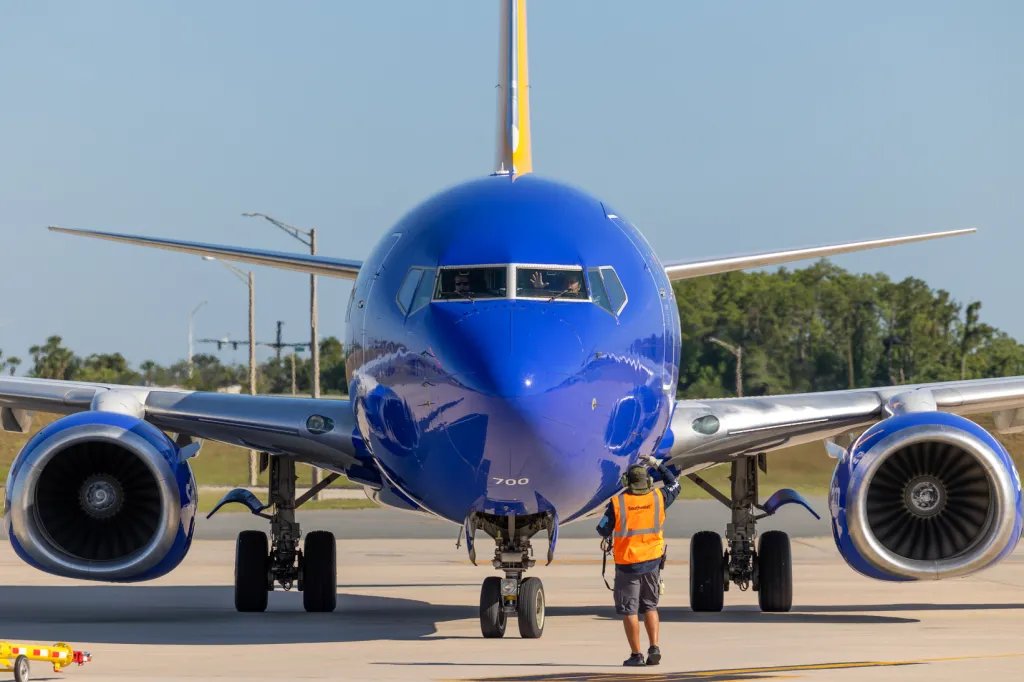Travel Market Insights
South Korea Offers Visa-Free Entry for Chinese Group Tours from September

South Korea is ready to roll out the welcome mat for Chinese tour groups this fall. Starting September 29 and running through June 30, next year, Chinese visitors traveling in organized groups will no longer need a visa to enter the country, the prime minister’s office announced on Wednesday.
The move comes just under a year after China lifted its own visa rules for South Korean nationals. It marks the broadest easing of entry rules for Chinese travelers since the pandemic, and offers a clear sign that both capitals are looking to deepen ties through tourism.
It’s unclear the duration for which the tourists can stay visa free in the country as the government has yet to announce the maximum duration for group tourists under the new policy.
In November 2024, China surprised many by adding South Korea to its visa-free list for stays up to 15 days. “With Korea’s inbound tourism market recovering rapidly, the new visa waiver policy is expected to generate additional demand from Chinese tourists and contribute to revitalizing regional economies and boosting domestic demand,” a government statement said.
Earlier, Chinese group travelers could only visit Jeju Island visa-free, and only for up to 30 days. A brief window of exemptions for group tours during the 2018 Winter Olympics in Gangwon Province offered limited scope. But this new policy applies nationwide, no matter how visitors arrive.
According to Skift Research’s 2025 Travel Outlook Survey, travelers from India and China lead in plans to spend on travel.
Tourism by the Numbers
Tourism is staging a strong comeback for South Korea. Last year, the country welcomed 16.37 million international visitors, a 48% increase over 2023, though still 6.5% below its pre-pandemic peak. Chinese tourists led the way with 4.6 million arrivals.
In the first half of 2025, 8.83 million overseas visitors came to Korea, almost 15% more than a year earlier and already above pre-pandemic levels. Of these, Chinese tourists made up the biggest share with 2.53 million arrivals. Seoul hopes to draw 5.36 million Chinese visitors this year, closing in on the 6.02 million recorded in 2019.
A World Travel & Tourism Council report released last year said the tourism industry in South Korea was projected to account for 4.3% of the nation’s economy. In 2024, foreign visitors spent more money than ever, pouring 9.26 trillion won ($6.9 billion) into the local economy in 2024, around 43% more compared to the year before.
The Bank of Korea estimates that every additional million Chinese tourists could lift GDP by up to 0.08 percentage points. Incheon Airport data show that routes between Korea and China saw 4.68 million passengers in the first five months of 2025, a nearly 25% jump compared to last year.
The top-visited destinations for Chinese travelers are Singapore, Japan, and South Korea, according to China Trading Desk’s second quarter survey released in June.
More than 100 countries enjoy visa-exemption privileges in South Korea, under pacts based on reciprocity or national interest. Depending on the country, stays range from 30 days to up to six months for countries like Canada.
More Than Just Visas
South Korea isn’t stopping at visa waivers. It plans to speed up immigration for key visitors to conferences, trade shows, and exhibitions. Under the new plan, any international event with at least 300 foreign participants (down from 500) will qualify attendees for fast-track lanes at immigration. This should help Korea’s push to be a top-tier destination for meetings, incentives, conferences and exhibitions.
Medical tourism is getting a boost too. Agencies that refer 500 or more foreign patients will now be able to handle electronic visas.
Korean carriers are boosting capacity across Asia, launcing new routes and adding flights to Japan, China and Southeast Asia. This month, Korean Air increased its weekly China service from 188 to 194 flights, this is about 90% of its pre-pandemic schedule. Since May, Asiana has added 26 weekly flights to China. Low-cost carrier Jeju Air now offers seven weekly services to China.
South Korea’s foreigners-only casinos have also been witnessing a significant rise in their sales revenue with the return of high rollers from China and Japan. Paradise Co, the largest such operator in Korea, saw its casino revenues climb by more than 50% in March 2025 compared to the year before, posting 81 billion won ($58 million) in casino revenue, according to the Korea Economic Daily.
The travel industry’s top event returns this fall.
September 16-18, 2025 – NEW YORK CITY
Travel Market Insights
Airbnb Expands Services, Southwest Joins Priceline and Choice Looks Abroad

Good morning from Skift. It’s Thursday, August 7. Here’s what you need to know about the business of travel today.
Airbnb shared early trends and updates on its relaunched Experiences product and new Services segment, writes Executive Editor Dennis Schaal.
The company said it processed 60,000 host applications for Experiences and Airbnb Services, where guests can order everything from private chefs to hair styling at a property. In addition, people who have booked Airbnb Experiences and Services gave those products higher reviews on average than stays.
Listen to This Podcast
🎧 Subscribe
Apple Podcasts | Spotify | Youtube | RSS
Chief Financial Officer Ellie Mertz said Airbnb will be marketing stays, Services, and Experiences as one brand.
Next, Southwest Airlines will now be available to book on Priceline, making it the second online travel agency to partner with the carrier, writes Airlines Reporter Meghna Maharishi.
Maharishi reports that Southwest flights will also be available across other Booking Holdings platforms, including Booking.com and Agoda. Southwest’s deal with Priceline comes after it announced a partnership with Expedia in February to host the carrier’s flights.
Southwest had previously resisted online travel agencies and encouraged direct bookings as a way to build loyalty and reduce distribution costs.
Finally, Choice Hotels said it’s focusing on global growth as business in the U.S. softens, writes Hospitality Reporter Luke Martin.
Choice executives said the company opened 15% more rooms internationally during the second quarter than it did last year, a higher figure than in the U.S. And Choice recently reached deals that would see the company grow in France and China.
Choice’s revenue per available room in the U.S. fell nearly 3%, and the company lowered its 2025 forecast. It now expects growth to land between flat and a decline of 3%.
The travel industry’s top event returns this fall.
September 16-18, 2025 – NEW YORK CITY
Travel Market Insights
We’re Open to Partnering With AI Chatbots

Airbnb CEO Brian Chesky said during the company’s second-quarter earnings call Wednesday that it is still “feeling out” the possibility of working with the big AI chatbots like ChatGPT, which he called “an incredibly compelling product.”
“We’re certainly open to” integrating with major AI Chatbots, which could be a source of lead generation for Airbnb, Chesky said.
Unlike Booking.com, which has partnerships with OpenAI, Amazon Web Services and Microsoft and sees generative AI chatbots as a new distribution channel, Airbnb has made no decisions yet about selling stays, Services or Experiences through major AI assistants.
AI Chatbots Are
Travel Market Insights
Airbnb Announces First Financials Since Services Launch

Key Points
- Airbnb relaunched its Experiences and introduced new Services, showing promising early results with 60,000 host applications.
- The company reported strong Q2 financials, including 13% revenue growth (to $13.1 billion) and a 16% rise in net income, outpacing expectations.
- AI-powered customer service has been expanded to all U.S. users, reducing the need for human agents by 15%, with plans for further global rollout.
Summary
Airbnb reported strong second-quarter financial results, highlighted by the positive early performance of its relaunched Experiences and new Services segment, which allow guests to book additional amenities. The company saw a 7% year-over-year increase in nights and seats booked, significant revenue and net income growth, and notable international expansion, particularly in markets like Japan. Additionally, Airbnb expanded AI-powered customer service to all U.S. users, reducing human support needs, with global rollout planned.
-

 Brand Stories2 weeks ago
Brand Stories2 weeks agoBloom Hotels: A Modern Vision of Hospitality Redefining Travel
-

 Brand Stories2 weeks ago
Brand Stories2 weeks agoCheQin.ai sets a new standard for hotel booking with its AI capabilities: empowering travellers to bargain, choose the best, and book with clarity.
-

 Destinations & Things To Do3 weeks ago
Destinations & Things To Do3 weeks agoUntouched Destinations: Stunning Hidden Gems You Must Visit
-

 Destinations & Things To Do2 weeks ago
Destinations & Things To Do2 weeks agoThis Hidden Beach in India Glows at Night-But Only in One Secret Season
-

 AI in Travel3 weeks ago
AI in Travel3 weeks agoAI Travel Revolution: Must-Have Guide to the Best Experience
-

 Brand Stories1 month ago
Brand Stories1 month agoVoice AI Startup ElevenLabs Plans to Add Hubs Around the World
-

 Brand Stories4 weeks ago
Brand Stories4 weeks agoHow Elon Musk’s rogue Grok chatbot became a cautionary AI tale
-

 Brand Stories2 weeks ago
Brand Stories2 weeks agoContactless Hospitality: Why Remote Management Technology Is Key to Seamless Guest Experiences
-

 Asia Travel Pulse1 month ago
Asia Travel Pulse1 month agoLooking For Adventure In Asia? Here Are 7 Epic Destinations You Need To Experience At Least Once – Zee News
-

 AI in Travel1 month ago
AI in Travel1 month ago‘Will AI take my job?’ A trip to a Beijing fortune-telling bar to see what lies ahead | China













You must be logged in to post a comment Login